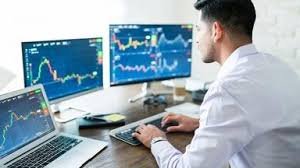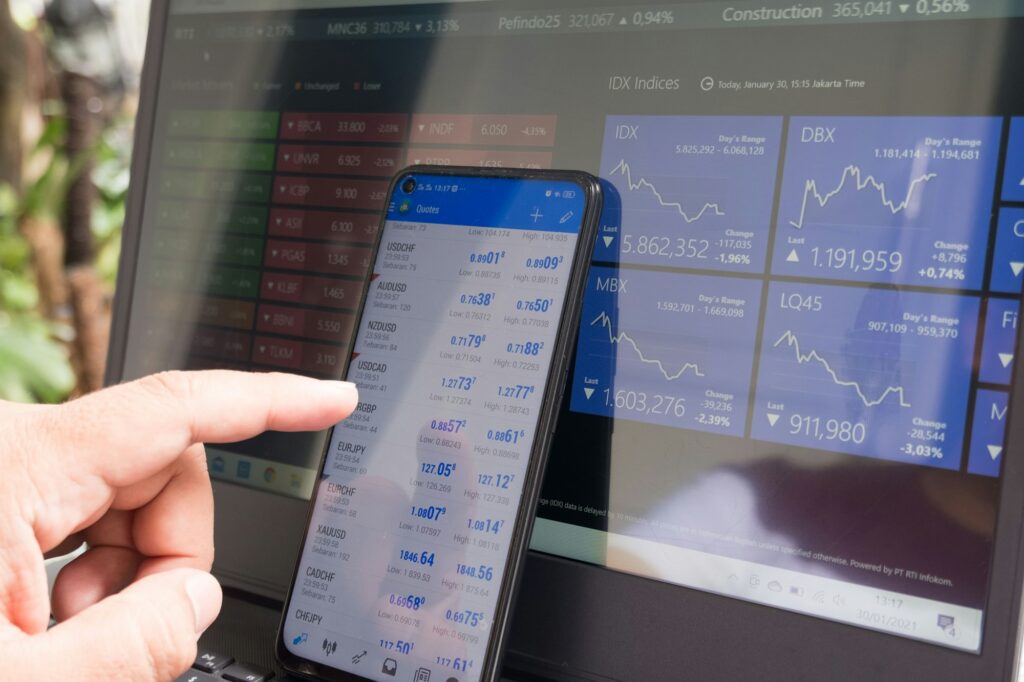
The amount of money you need to start forex trading can vary depending on several factors, including your trading strategy, leverage, and risk tolerance. Here’s a general overview:
How much money do I need to start forex in 2024?
- Minimum Deposit: Many brokers have a minimum deposit requirement that can range from $100 to $1,000. Some even offer micro- or cent-dollar accounts that require less.How much money do I need to start forex in 2024?
- Leverage: Forex trading often involves leverage, which allows you to control a large position with a smaller amount of money. For example, with 100:1 leverage, you can control $100,000 with just $1,000. However, higher leverage increases risk.
- Risk Management: It’s advisable to start with an amount you can afford to lose. Many traders suggest starting with at least $1,000 to $2,000 to have enough margin and manage risk effectively.How much money do I need to start forex in 2024?
- Trading Strategy: Your strategy will also affect the required amount. For instance, day trading might require more capital compared to swing trading due to the frequency and size of trades.
- Broker Fees: Consider the cost of spreads, commissions, and other fees associated with trading.
1. Advanced Trading Algorithms and Systems:
- Sentiment-Based Algorithms: Develop algorithms that incorporate market sentiment data from news, social media, and financial reports to make trading decisions.How much money do I need to start forex in 2024?
- Pattern Recognition Algorithms: Implement machine learning algorithms for recognising complex chart patterns and trading signals.
2. Behavioural Trading Strategies:
- Market Sentiment Analysis: Use tools and techniques to gauge overall market sentiment and develop strategies based on collective trader psychology and behaviour.How much money do I need to start forex in 2024?
- Contrarian Strategies: Develop contrarian trading strategies that go against prevailing market sentiment, identifying potential reversals.
3. Advanced Risk Management Tools:
- Scenario Analysis: Conduct detailed scenario analysis to model various market conditions and assess potential impacts on your trading positions.
- Stress Testing: Use stress testing to evaluate how extreme market conditions would affect your trading portfolio.
4. High-Frequency and Low-Latency Trading:
- Colocation Services: Utilise colocation services to reduce latency and improve execution speeds by placing your trading algorithms on servers located near exchange servers.How much money do I need to start forex in 2024?
- Tick-by-Tick Data Analysis: Analyse tick-by-tick data to gain granular insights into market movements and enhance high-frequency trading strategies.
5. Global Economic and Political Analysis:
- Macro-Economic Indicators: Incorporate advanced macro-economic models to analyse indicators such as GDP growth, inflation rates, and trade balances.
- Political Risk Assessment: Develop frameworks to assess the impact of political events, such as elections and policy changes, on forex markets.How much money do I need to start forex in 2024?
6. Advanced Technical Analysis Techniques:
- Fractal Geometry: Use fractal geometry to analyse market structures and price movements that exhibit self-similarity at different scales.
- Nonlinear Dynamics: Apply nonlinear dynamics and chaos theory to understand and predict complex market behaviours. How much money do I need to start forex in 2024?
7. Emerging Market Strategies:
- Frontier Markets: Explore trading opportunities in frontier markets, which may offer higher growth potential but also come with increased risks.
- Emerging Market Debt: Incorporate strategies involving emerging market debt and currencies to diversify and enhance returns.How much money do I need to start forex in 2024?
8. Machine Learning and Artificial Intelligence:
- Reinforcement Learning: Use reinforcement learning techniques to develop adaptive trading algorithms that learn and improve over time based on past experiences.
- Natural Language Processing (NLP): Implement NLP techniques to analyse and interpret large volumes of unstructured text data, such as news articles and financial reports.How much money do I need to start forex in 2024?
9. Portfolio Theory and Optimisation:
- Modern Portfolio Theory (MPT): Apply MPT principles to optimise your trading portfolio by balancing risk and return.
- Black-Litterman Model: Use the Black-Litterman model to incorporate market views and adjust asset allocation based on expected returns and covariances. How much money do I need to start forex in 2024?
10. Advanced Market Microstructure:
- Order Flow Analysis: Analyse order flow to understand market liquidity and the impact of large trades on price movements.How much money do I need to start forex in 2024?
- High-Frequency Trading (HFT) Strategies: Explore sophisticated HFT strategies that leverage advanced algorithms and technology for rapid execution.
11. Legal and Ethical Considerations:
- Compliance and Reporting: Stay up-to-date with compliance requirements and reporting standards for forex trading, including anti-money laundering (AML), and know your customer’s KYC regulations.
- Ethical Trading Practices: Ensure that your trading practices align with ethical standards and do not involve manipulation or unethical behaviour.

12. Trading Psychology and Behavioural Economics:
- Cognitive Behavioural Techniques: Use cognitive behavioural techniques to manage psychological biases and improve decision-making processes.
- Emotional Regulation: Develop strategies to regulate emotions and maintain discipline during periods of high volatility or stress.
13. Advanced Fundamental Analysis:
- Economic Modelling: Develop and use complex economic models to predict currency movements based on a wide range of economic variables and scenarios.How much money do I need to start forex in 2024?
- Global Trade Dynamics: Analyse global trade dynamics and their effects on currency exchange rates, focusing on trade agreements, tariffs, and trade balances.
14. Innovation in Financial Technology:
- Fintech Solutions: Explore fintech solutions such as blockchain-based trading platforms and digital wallets to enhance trading efficiency and security.
- Smart Contracts: Investigate the use of smart contracts to automate trading processes and enforce trade agreements.
15. Advanced Research and Development:
- Quantitative Research: Conduct in-depth quantitative research to develop new trading models and strategies based on empirical data and statistical analysis.How much money do I need to start forex in 2024?
- Innovation Labs: Participate in innovation labs or incubators focused on financial technology and trading solutions. http://WWW.FXPLANETS.COM
Final
By delving into these advanced areas, you can further refine your forex trading strategies, leverage cutting-edge technologies, and stay ahead in the dynamic world of currency trading.

